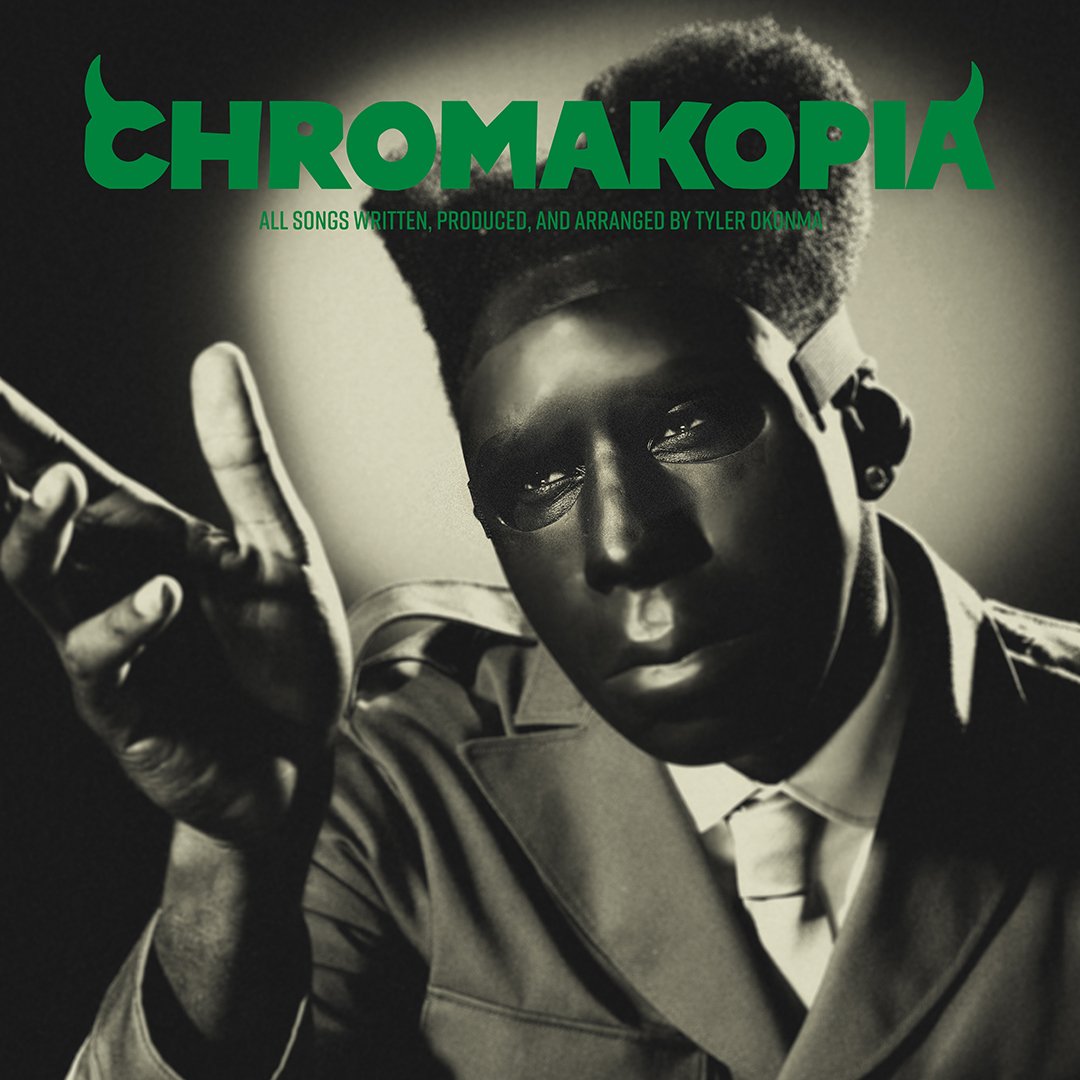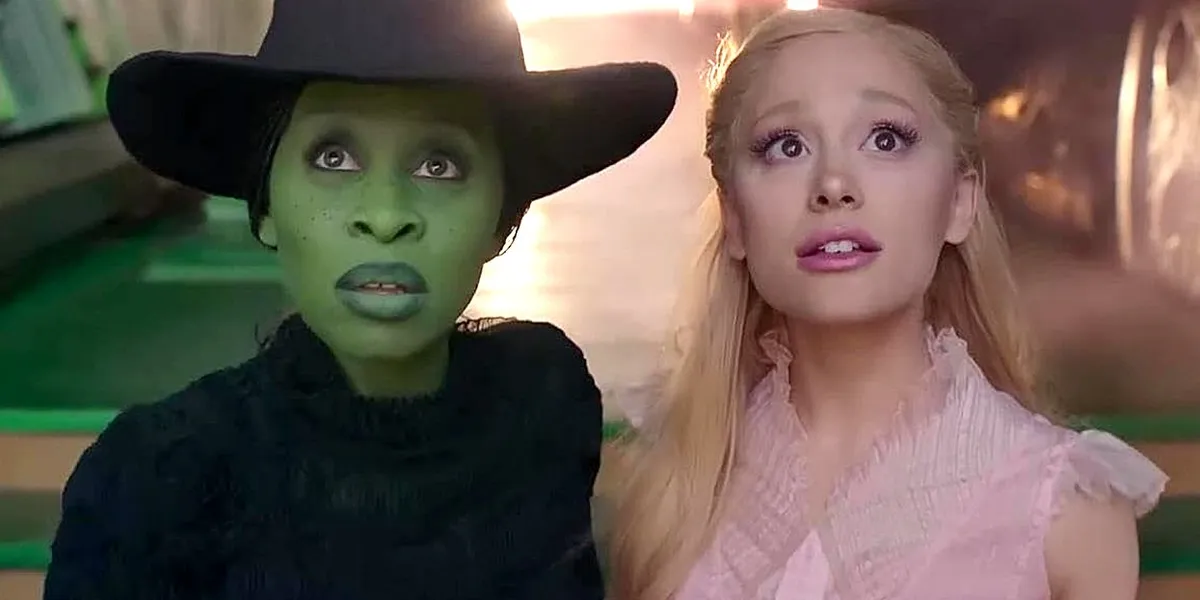“Takin’ you out, it’s not a game / Feel ashamed, so we straightened you out without a doubt,” Tyler, the Creator sings on his sixth track, “I Killed You” of his latest album, “Chromakopia.” Although every song on this album made a statement about some facet of his life, it stood out to me because it felt like the strongest message, the one he had been waiting the longest to share.
Tyler Gregory Okonma, better known to the public as Tyler, The Creator released his eighth studio album, “Chromakopia” on Oct. 28. While the album was produced, arranged, and written by Tyler, himself, he featured many current names in hip-hop, such as Daniel Caesar, Lil Wayne, GloRilla, Sexxy Red, Doechii, Teezo Touchdown, and more.
Upon closer inspection, the song mentioned above, “I Killed You, ” is about Tyler’s hair and how he used to always straighten and blow dry it, effectively “killing” his hair. Throughout this song, it can be inferred that he did all of this to his hair because he felt pressured by society. They tend to have generally negative views on the hair of Black people, and that is a grievance he clearly feels.
It’s important to note that his hair is something he briefly touched on before in his previous album, “Call Me If You Get Lost,” but this is the first time Tyler directly talks about it.
If you’re worried about analyzing the lyrics for their deeper meaning, don’t. I already did that for you. 30 pages worth of lyrics in a Google Doc, and I read them all just for this article but that’s beside the point.
This album falls short of being Tyler’s best work album, dynamics or mood-wise, but the lyricism of this album is without a doubt outstanding. Each song contains a bigger meaning that correlates to his personal life in some way, opening up to his listeners in a way he hasn’t previously.
Lyricism aside, Tyler, the Creator, if nothing else is known for his performances; with massive venues and sold-out concerts. He knows how to put on a fantastic show, as proven by the tour he already announced; starting in February of 2025.
For this album, Tyler spent many lyrics on the themes of relationship dynamics- between him and his partners, as well as between him and his parents, so plenty of depth involved there. He also touches on pregnancy, and gender identity which fits in with the relationship concept.
In terms of schematics, there are fourteen tracks on the album, with “Noid” being the only single he released beforehand on Oct. 21, seven days prior to the drop of the full album.
Now, I have listened to the whole album at least three times by now, so I know that the lyrics are fresh, with them taking on a more spoken-word poem quality rather than traditional rapping. This is a technique Tyler has used before but the emphasis on this attribute is brought to the forefront, in this case. He used almost military-like drum beats and chants, accompanied by minimalistic lyrics that really let the rhythm speak for itself.
A great example of his rhythms is the first minute of “St. Chroma,” the first track on the album; the majority of the song is backed by a repetitive marching beat along with a panting breath, adding to the sense of urgency and almost desperation Tyler implies for the entirety of the album.
As I have said previously, Tyler refuses to stick to just one style. Look at “Hey Jane,” the fifth track. You hear a simpler beat in the background, it’s more relaxed, more airy– it sounds like he may have been using a marimba or something similar. Accordingly, the lyrics are more complicated than they were in “St. Chroma.” He raps about a pregnancy scare, presumably something that happened to him recently in real life. I assume he drew on a true experience because when looking at the two verses, the first from his perspective, and the second from the woman in this relationship, there is just too much emotion and extreme detail behind each line for it to be theoretical.
“Maybe this a blessing in disguise, not a regret / Look, Jane, it’s your choice at the end of the day / Just know I’ll support either way, no pressure”; these are the final lines of Tyler’s verse, before switching to the woman’s point of view. For me, when I read those lyrics, it says he has genuinely thought about their situation and how it affects him, and his partner. He considered this situation from all sides, and as a result, this song was born. It was not just something he debated, theoretically, for the sake of a song.
If it’s not obvious by now, I genuinely appreciate this album. Tyler, the Creator did a beautiful job of balancing introspective and candid lyrics, with colorful, lively rhythms that added another dimension to the overall sound of the album. My personal favorites are probably “Noid” and “Rah Tah Tah” because the beats are simply outstanding, but more than anything else I love the mechanics of these two songs and how Tyler made “Rah Tah Tah” essentially bleed into “Noid” with the lyrics of the former leading into the beginning of the latter.
If someone is looking to actually get into Tyler’s music after reading this, I would undoubtedly recommend “Call Me If You Get Lost,” to be your first listen. This is his most recent album after “Chromakopia,” and I find it to be of a higher caliber because the beats and lyrics mesh in a way that “Chromakopia” was unable to accomplish. That is not to put “Chromakopia” down but I do believe Tyler has created better albums. Either way, I am grateful for this new version of his music and eagerly await whatever may come next for him because I find him to be a person deserving of his fame.









